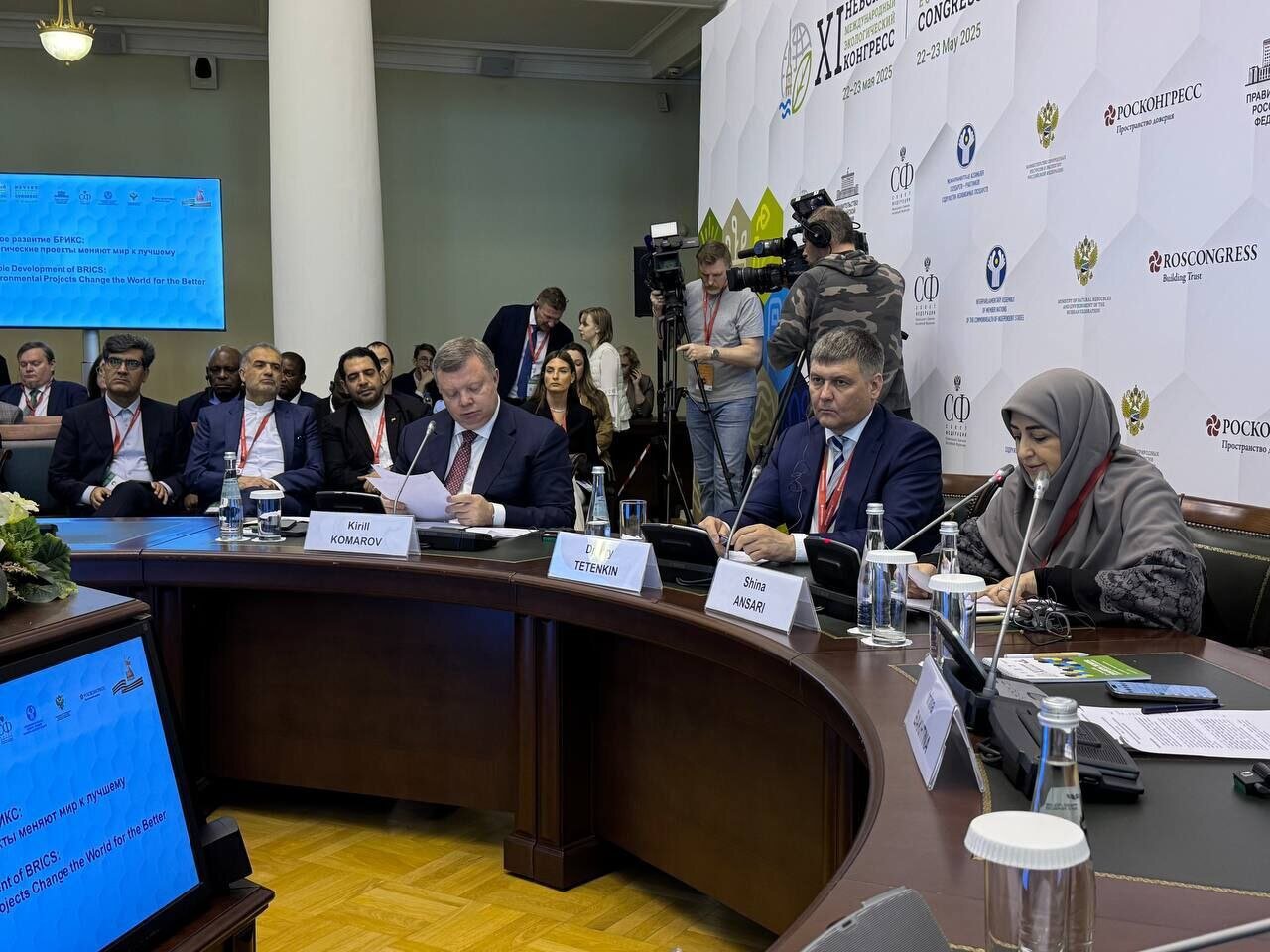Without global cooperation, sustainable development is impossible: head of DOE

TEHRAN – The head of the Department of Environment, Shina Ansari, has said cooperation is the only way forward, as without global cooperation, achieving sustainable development is impossible.
“Sustainable development must be a global effort in which nations unite and act together to overcome the challenges,” IRNA quoted
The official made the remarks while addressing the BRICS panel, ‘BRICS and sustainable development of environment’, which was conducted on May 22 on the sidelines of the 11th Nevsky International Ecological Congress held from May 22 to 23 in Saint Petersburg, Russia.
“Furthermore, if countries decide individually, without any coordination with other nations, not only will the impact of the efforts be lowered, but sustainable development itself risks being perceived as a false promise or a deceptive slogan,” Ansari highlighted.
The official also proposed joint development of a strategic and fundamental program to guide collective efforts.
She went on to say that the distinctive feature of sustainable development is its ability to change mindsets. It encourages long-term change, promoting individuals and communities to think about their actions and their impacts on the planet. This shift in perspective is much more powerful than temporary technical solutions or legal measures.
“Unlike technical or legal solutions, which often offer quick-fix remedies, sustainable development addresses the fundamental cause of environmental, economic, and social issues. However, to achieve sustainable development goals, infrastructure, education, and public awareness are crucial. Otherwise, we cannot expect citizens to accept concepts that they have never heard of or learned about,” she further noted.
The official also elaborated on the country’s activities to align with sustainable development. “Sustainable development model lays the basis for a future in harmony with nature and a guarantee of human health and wellbeing.”
Today, sustainable development is vital not only for protecting the environment but also for improving the quality of life and creating equal opportunities for people in different societies.
To do so, Iran has adopted various measures such as offering incentives to companies that submit Corporate Social Responsibility (CSR), and adhere to Environmental, Social, and Governance (ESG) issues. This initiative indicates Iran’s alignment with internationally recognized standards for sustainable development and that the country is striving to incorporate these principles into its economic and trade procedures, Ansari said.
These measures further boost environmental sustainability and guarantee that the private sector prioritizes sustainable economic growth and social well-being, she further noted.
Nevsky Intl. Ecological Congress
The 11th Nevsky International Ecological Congress was held from May 22 to 23 in Saint Petersburg, Russia.
Ministers of environment from more than 40 countries, including Iran, Azerbaijan, Algeria, Burkina Faso, Belarus, Serbia, Indonesia, Jordan, Cambodia, and Kenya, attended the Congress.
The main goal of the Nevsky International Ecological Congress is to create effective and sustainable development mechanisms to preserve the environment in a changing climate.
The Congress 2025 once again hosted interstate, intersectoral dialogue on important environmental issues, with representatives from international organizations, government authorities, and business, scientific, and expert communities from across the globe already having confirmed their intention to attend the event.
The 11th Nevsky International Ecological Congress kicked off on May 22 with a Youth Programme, which became an important part of the business agenda.
Participants were treated to open dialogues and thematic sessions on youth engagement in the resolution of climate issues, the promotion of environmental awareness, the development of a culture of environmental volunteering, the inclusion of children in the ‘green’ agenda, and the role of youth climate initiatives in a more sustainable future.
The roundtables and sessions on May 22 focused on food security and climate risks, sustainable ecotourism, how artificial intelligence and digital solutions can be applied to benefit the environment, international cooperation within BRICS, conditions in the Caspian region, the development of the circular economy, the role of women in promoting eco-initiatives, green investment, the management of mineral resources, and low-carbon technologies.
On May 23, regional heads, mayors, and experts discussed the modern sustainable development practices of megacities, the process of making transport more environmentally friendly, the preservation of green areas, and new approaches to health preservation.
MT/MG
Leave a Comment